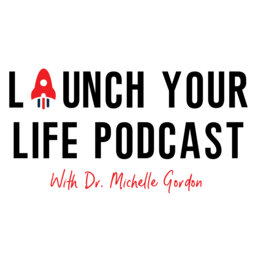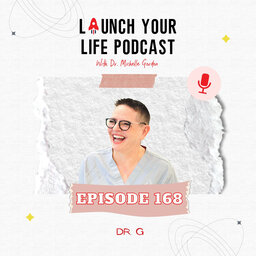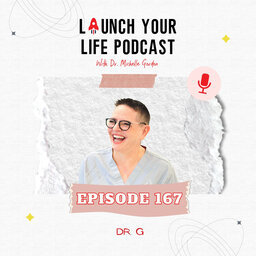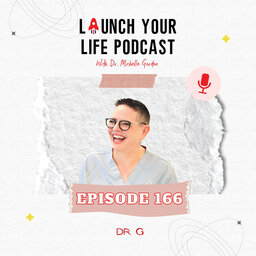Hormones After Menopause with Dr. Sharzad Green
Hormones After Menopause with Dr. Sharzad Green
As women get older, we get closer to our menopausal age. When this happens, we tend to have a hormone imbalance. As a result, we may experience symptoms of weakened bones and decreased sexual function.
Today, we’re back on the show with pharmacist Dr. Sharzad Green. She will be discussing the required laboratories for a proper hormone consultation, the importance of thyroid glands, what estrogen allergy is, the importance of calcium in postmenopausal women, sexual dysfunction in menopause, and the role of vaginal dryness.
Some women may avoid talking about these concerns, but they are important, and we need to be informed. Make sure to tune in to the podcast to learn new and insightful information!
About Our Guest
Dr. Sharzad Green is a pharmacist whose experience spans almost 30 years. Her primary focus is on women’s health. She specializes in integrative medicine, bioidentical hormone replacement therapy, adrenal fatigue syndrome, and sexual dysfunction. In addition, she conducts counseling for women regarding their hormonal situation.
Dr. Green’s Advice on Your Hormonal Situation
Proper Hormone Consultation
- Laboratory tests establish the situation of your body.
- Most people question the reliability of these tests, but they are necessary to understand the changes happening to your body.
- Without undergoing a laboratory test, you and your doctors will not have a reference point, especially when you are nearing your menopausal age.
- By having these tests, you can opt to undergo therapy and eventually check whether your body has improved or not.
- The first recommended test is to measure your estrogen levels, namely estradiol and estrone sulfate.
- As your estrogen levels drop, some biomarkers increase to indicate that you are nearing your menopause age. These two markers are called FSH or follicle-stimulating hormone and LH or luteinizing hormone.
- The next hormone to measure is your progesterone level. This hormone is usually the first to drop and affects your mood.
- The more your progesterone level drops, the worse the symptoms get.
- Progesterone is significant for your mood, sleep, and bones. Together with estrogen, it prevents endometrial cancer.
- Your testosterone level can also decrease years after you go into menopause. But for some people, it drops significantly before or at the onset of menopause. Low testosterone can prompt you to take supplements.
- Another test is to measure your DHEA sulfate, which is connected to adrenal fatigue syndrome.
- Having a thyroid panel could also benefit you and your doctor because thyroid imbalance could mimic female hormone imbalance.
Importance of Thyroid Function
- Green has no thyroid gland because it was surgically removed due to thyroid cancer.
- A fancy drug does not mean it would be effective for you. You and your doctor should determine which drugs work for your body.
- Hashimoto’s disease is an autoimmune disorder in which your body contains high antibodies, which can lead to your body attacking your thyroid gland.
Estrogen Allergy
- Bleeding due to hormone therapy is possible if you are not given the right estrogen dose or when you start therapy prematurely.
- It is not true that an allergy causes this bleeding. You are not allergic to your hormones. However, you may experience bloating, premenstrual syndrome or PMS, breast tenderness, and water retention because your body is not yet ready for the therapy.
- There is no such thing as estrogen allergy because all women produce estrogen in their bodies.
Importance of Calcium in Postmenopausal
- Your body must get about 1000 milligrams of calcium a day from food or food supplements.
- Your hormones protect your bones, but when their levels drop, you could lose the strength of your bones and eventually get osteopenia and osteoporosis.
- The combination of smoking and estrogen could increase blood clots, heart attacks, and strokes.
- If your bone density is abnormal, then you should consider hormone therapy - a very individualized thing.
The Role of Vaginal Dryness
- Not having enough estrogen in your body can cause vaginal dryness.
- Although it is not a publicly discussed topic, this happens a lot.
- It can cause bladder issues, frequent leakages, recurrent urinary tract infections, and yeast infections.
- Not having enough lubrication can result in thin and dry vaginal tissue, which can sometimes have cracks. This leads to painful sex.
Women’s Sexual Dysfunction
- Sex is a taboo and non-discussed subject.
- Your overall testosterone and estrogen levels influence sex drive.
- Sexual dysfunction can also be due to vaginal dryness.
Adrenal Fatigue Syndrome
- Adrenal glands are two glands on top of each kidney, helping you get through stressful situations.
- For instance, due to major stress, your adrenal glands have to work extra hard until they get exhausted. When this happens, you will also feel tired.
- Meditation is a recommended activity.
- High doses of vitamin C of at least 1000 to 2000 milligrams, B complex, and adaptogens can also help your body get through adrenal fatigue syndrome.
- However, the actual cure for this disorder is managing stress, having a proper diet, and exercise.
You may contact Dr. Sharzad Green at drsgreenrx@outlook.com or visit FabuVag website.
If you have any concerns or ideas, you can discuss them with me at drgordon@menopausemovement.com. You may also visit our online community at Menopause Movement with Dr. Michelle Gordon.
I hope you enjoyed and learned something new from this episode. Thank you for listening!
 Launch Your Life Podcast
Launch Your Life Podcast


